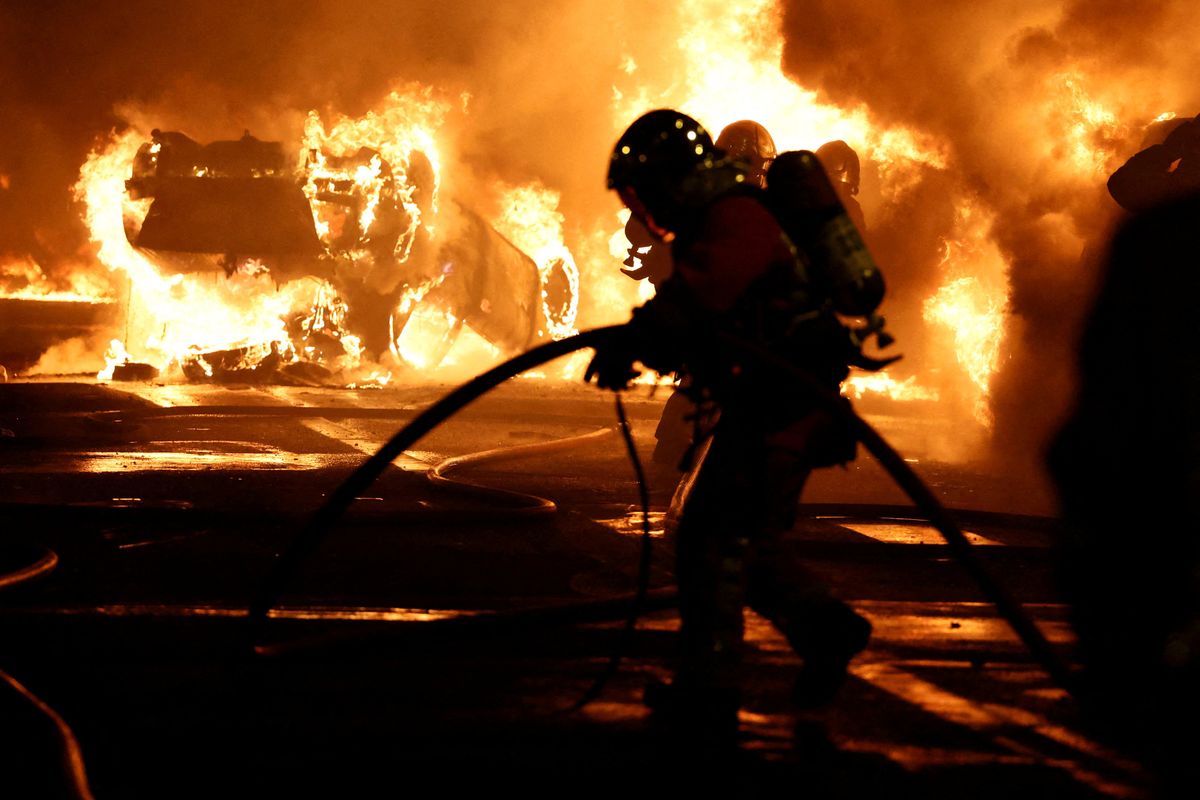On Thursday, French President Emmanuel Macron held a crisis meeting of his government after a second night of clashes between protesters and cops over the fatal police shooting of a 17-year-old in Nanterre. The teenager, who was reportedly from a family of Algerian origin, was killed during a traffic stop on Tuesday morning. At least 150 people were arrested overnight as the protests spread from Paris to other cities, with vehicles set ablaze and tear gas fired.
The teenager’s death has struck a chord with part of the French public, who are increasingly frustrated by instances of alleged police brutality and racial profiling.
In the banlieues, low-income housing projects located outside cities, non-white residents have long complained about police harassment. A 2017 report by the French human rights ombudsman found that “young men perceived to be Black or Arab” were 20 times more likely to be stopped compared to the rest of the population. In 2021, three young men won the country's first racial discrimination lawsuit against cops over being targeted for ID checks in Paris when they were students. Police unions say such measures are necessary to prevent crime and deny any racial bias.
"J’ai mal à ma France" (“I hurt for my France”), tweeted Kylian Mbappé, born to a Cameroonian dad and an Algerian mom and who grew up in a banlieue before he became a soccer superstar for PSG and the French national team.
This could all become more than a headache for Macron. Right-wing and far-right politicians are already calling for him a declare a state of emergency to stop the riots, which they say the left is making worse by playing the race card. If the unrest continues, the president will face a delicate balancing act between justice for the victim and order on the streets, and it’ll hamper Macron’s ability to move on from the public rage against his controversial pension reforms earlier this year.





